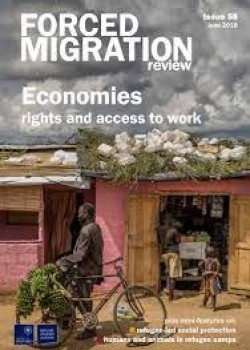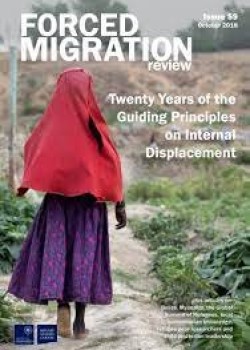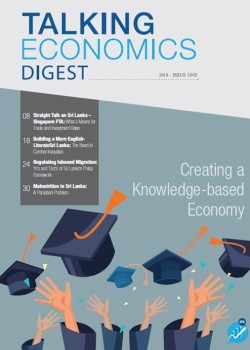Journal of South Asian
Religious Revivalism in South Asia
Page Numbers: 135
Series: October-December 2003
Acc. No: 362-J
Category: Journals
Subjects: Adult Education
Languages: English
Religious Radicalism in South Asia Dedicated largely to discussion regarding religion, nation, state and identity in South Asia, the second issue of the South Asian Journal begins with an essay by Professor Peter van der Veer of the University of Amsterdam, in which he discusses the issues of fundamentalism and radical religious movements, in general, and in South Asia, in particular. Looking at the concept of modernisation and globalisation and locating the growth of these radical religious movements, van der Veer questions the nature of the ‘religiousness, of these movements in contrast to more ‘secular, demands. He argues that what are often perceived to be religious movements need not purely be that and are more broadly ‘political, in nature. He cautions us about using such concepts and dichotomies as religious/secular which, he says, are historically located and are being transformed by and affecting the modern state. Religion, like racism, nationalism and the patronage of ‘white-man,s burden, has been in use as an instrument of politics for centuries by various communities, nations and regions in their struggle for domination and survival. The rise of religious revivalism/radicalism in almost all countries in South Asia shows that new independent statement neither address the concerns of the minorities, or integrate them in the mainstream. The people of South Asia need to shed their ‘false consciousness, and come forward to stop the march of the forces of religious extremism for a peaceful, fraternal, civilized and prosperous region. Religious Radicalism in South Asia Dedicated largely to discussion regarding religion, nation, state and identity in South Asia, the second issue of the South Asian Journal begins with an essay by Professor Peter van der Veer of the University of Amsterdam, in which he discusses the issues of fundamentalism and radical religious movements, in general, and in South Asia, in particular. Looking at the concept of modernisation and globalisation and locating the growth of these radical religious movements, van der Veer questions the nature of the ‘religiousness, of these movements in contrast to more ‘secular, demands. He argues that what are often perceived to be religious movements need not purely be that and are more broadly ‘political, in nature. He cautions us about using such concepts and dichotomies as religious/secular which, he says, are historically located and are being transformed by and affecting the modern state. Religion, like racism, nationalism and the patronage of ‘white-man,s burden, has been in use as an instrument of politics for centuries by various communities, nations and regions in their struggle for domination and survival. The rise of religious revivalism/radicalism in almost all countries in South Asia shows that new independent statement neither address the concerns of the minorities, or integrate them in the mainstream. The people of South Asia need to shed their ‘false consciousness, and come forward to stop the march of the forces of religious extremism for a peaceful, fraternal, civilized and prosperous region.



